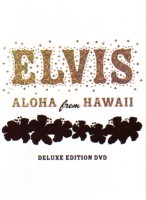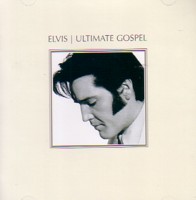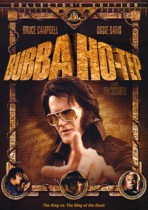 |
 |

Hi everyone Well another birthday celebration has been and gone in Memphis (although the town of Parkes in Australia is experiencing its biggest ever Elvis Festival as thousands of Elvis tragics and more Elvii than you can imagine have invaded the normaly quiet country town). Around the world fans are now planning for the 30th Anniversary of Elvis' passing...Elvis Week 2007. This year promises to be a beauty and EIN still has places left on our Ultimate Tour to Elvis Week, so if you have been thinking about enjoying your ultimatre Elvis experience why not join us! With days spent in Los Angeles, Las Vegas, Nashville, Tupelo, and of course Elvis Week in Memphis; many meals included; and Elvis sight-seeing galore, the tour promises to be an exciting, fun-filled experience.
EIN has been running tours to Graceland for 20 years and our tours are recognised as among the best you can get.
EIN's ultimate tour also offers a number of things other tours don't:
1. The tour is fully escorted by not one, but two very knowledgable Elvis fans! We know the obvious places to see, but more importantly we also know the out-of-the-way places which add real value to your holiday enjoyment and memories.
2. Very special guests!!! While we are "keeping mum" about just who we have lined up to surprise tour members during the 17 days, we can assure you, no-one will be disappointed!
3. EIN's 'famous' Tour Pack - given to each tour member this includes a variety of Elvis things. While we are yet to settle on this year's precise pack contents, in the past it has included books, CDs, DVDs, tour cap, postcards, fact sheets etc.
4. As always, our tour offers a good balance between structured activities and FREE time where individuals can do their own thing individually or in groups.
We have deliberately limited the Ultimate 30th Anniversary Tour to 32 participants. This ensures members are treated as fans and not just a number.
As probably the last major Elvis Week, August 2007 promises to be a great time with the recently renovated Tupelo Museum now open and many new Elvis Week events planned.
Nigel & Piers
Now on www.elvisinfonet.com:
No major documentary planned!Despite news that EPE was behind a major new Elvis documentary it turns out the story was false. Here is a statement from EPE on the issue: The story is false. Where the New York Post got such an idea, we don't know. Weird. Perhaps they ran across some old info from 2004/2005 when the documentary "Elvis By The Presleys" was in production and got confused. EIN Comment: The EPE Elvis anthology/documentary has been on the drawing board for many years now. While it certainly needs to be done right why hasn't it seen the light of day?
More Elvis Camden releases in UKElvis News reports that according to the new listings in the on-line shop CD Universe the following albums are due for release on the Camden label on January 14, 2007: |
But then, on another day, he was either scoffing at the threat to his career, or in a fury, saying he wanted all those who'd betrayed him killed. His depression was quickly deepening, and, as it did so, the drugtaking increased, as did his weight, as he downed mountains of the sweet foods addicts crave. His father or his manager should have had him committed immediately to a drugs rehabilitation clinic and kept him there, but they didn't. And as always, money problems were pressing for Elvis and 'Colonel' Tom Parker, his manager. For reasons impossible to understand outside that of pure greed or the need to pay off another Las Vegas gambling debt, Colonel Parker now agreed a fee of $750,000 to have a couple of concerts filmed for a television special. They were taped in June, in Nebraska and South Dakota. When they were eventually transmitted they displayed a sad horror show - a lost, pale, lonely hulk of a man, grossly overweight, distant, sweating and pathetic, trying to the very end to behave with dignity and grace. |
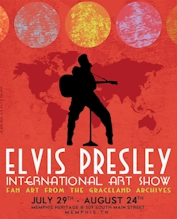 |
Despite everything he'd done to himself, Elvis Presley was still a proud man. He loved his fans, and he must have hated them seeing him in that state. Adding the Billy Swan song I Can Help to one of the concerts, he was met with a cry from the audience: 'You need help.' He did, but he wasn't going to get it.
For much of the following six weeks that summer, Elvis stayed at home. Apart from his daughter, Lisa Marie - who'd come for a holiday and who he would lead around the grounds on a pony - he saw only his closest aides, his doctor and his girlfriend, Ginger, to whom he gave another new sports car.
His next short tour was due to begin in Portland, Maine, on August 16. In the days leading up to the tour - and with the expose of his drug-taking, Elvis: What Happened? now on sale - he tried to put on a brave face. He told everyone it would be the 'best tour yet'. But he made little effort to reduce his weight, other than playing a little racquetball on his Graceland court.
At 10.30 on the evening of August 15, he left Graceland wearing a Drug Enforcement Agency sweatshirt, and with two guns in the waistband of his trousers, to see his dentist. When he returned, he called his doctor, Dr Nichopoulos, better known as Dr Nick, to ask for painkillers. He then sent one of his aides, who worked a 24-hour shift system for him, to an allnight hospital pharmacy with a prescription.
A couple of hours later, in the middle of the night and still awake, he asked Rick Stanley, his step-brother by Vernon's second marriage and now an employee, if he would like to play racquetball. But then, soon boring of the game, he sat at a piano and sang a couple of gospel tunes. The last song he ever sang was Willie Nelson's Blue Eyes Crying In The Rain. Returning to his bedroom, he took the first of three packets of sleeping pills, depressants and placebos - a confection of Seconal, Placidyl, Valmid, Tuinal and Demerol - prescribed by Dr Nick.
A little later, as the first packet hadn't worked, he took a second packet, and finally a third. Still unable to sleep, he told Ginger Alden that he was going into the bathroom to read. He had been reading a book about the Turin Shroud, but he now chose a study of psychic sex, correlating sexual energy with astrological signs. At that point, Ginger went to sleep.
She awoke at 1.30 in the afternoon. On not finding Elvis alongside her, she got dressed in the guest bathroom, and then went to find him. He was lying dead, face down on his bathroom floor. He had virtually bitten his tongue in two. He was 42.
His aides tried desperately to blow life into his dead lips, while Ginger locked Lisa Marie out of the bathroom and Vernon, who was suffering from cancer, began sobbing: 'Hold on, boy. Wait for me. I'm coming, I'm coming.' Dr Nick arrived at the same time as the ambulance men, shouting: 'Breathe, Presley, breathe' as he tried to resuscitate the body on its way to the Memphis Baptist Memorial Hospital, where Elvis had been to detox several times.
The announcement of Elvis's death was made at 3.30pm, the cause of death later being put down to a heart attack. Some fans still like to believe that; his weight had within just a few months soared to about 20 stones, a terrible load on his heart. But knowing the amount of drugs he regularly took, the question must be asked: what caused that heart attack?
| When a medical investigator from the coroner's office arrived at Graceland later that day to view the scene of death, he noted with some amazement - not to say suspicion - that apart from two empty syringes, there wasn't so much as a headache remedy in the entire place. Elvis would have thought it careless of his boys to have overlooked the syringes when they did their clean-up. They had, however, scrubbed the carpet with antiseptic where he had been found lying. | 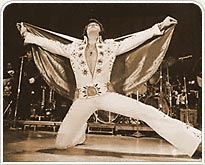 |
As with the death of President Kennedy, most people over a certain age can remember where they were when Elvis died. John Lennon had a typically sharp rebuke for the obedient retainers and over-prescribing doctors and pharmacists who had served Elvis. He said, quite simply: 'The courtiers killed the King.'
Certain members of the Memphis Mafia would find that hard to take. Some of them had been blameless when it came to drugs - trying, in fact, to intercept their delivery to him. Elvis had been impossible to control, they said. Others, perhaps more complicit, kept quiet.
Within hours of the news breaking, record stores around the world were sold out of Elvis albums. The following day, after one of his crew had coloured his sideburns and his hairdressing religious guru had cut and styled his hair, the body was returned to Graceland in a copper coffin, open for public view.
This gave one of Elvis's distant cousins the chance to snatch a sneaky photograph of the famous corpse and sell it to a tabloid newspaper. Perhaps not surprisingly for a man who had never made any attempt to become part of the Hollywood community, the mourners included few celebrities other than Sammy Davis Jnr. Only one of his old actress girlfriends turned up. James Brown, the soul singer, requested and was given a moment alone with the body.
The Colonel, who was the only person at the funeral not in mourning clothes - he wore a short- sleeved blue shirt and a baseball cap - leant heavily on Vernon to sign a new contract even before Elvis was buried, explaining that they would split everything 50-50, just as Elvis had done. Vernon, distraught with grief, signed, as he had always signed everything the Colonel asked him to.
And as RCA put its record plants into action, pressing millions more albums, in Britain Elvis's last single, Way Down, went to the top of the charts. Yet another million seller.
Eight years earlier Elvis had movingly recorded a song about a Long Black Limousine bringing a famous corpse home for burial, and on August 18, after a service at Graceland, with 150 police officers and National Guardsmen keeping back a 50,000-strong, weeping mob, a line of 16 white limousines carried the coffin with Elvis's body to a local cemetery.
He'd always loved lines of limousines. Usually he'd just bought them. So, as close members of his entourage carried the coffin to a crypt a few hundred yards from his mother's grave, and 40 vanfuls of flowers were given, at Vernon's request, to the fans, the final chapter on the man they'd once christened the Hillbilly Cat, the original who had started it all, was closed.
Sex, drugs and rock 'n' roll, they call it. And, with 14 different drugs found in his system at the autopsy, you could say Elvis had lived and died them all.
The story, however, was far from over. In fact a new chapter, which was due to run even longer than that of Elvis's career, was just beginning. The fan-worship Elvis had enjoyed for more than 20 years refused to go away. In fact, in some respects it seemed to intensify. The fans just didn't want to accept that he was dead, and as the first 'sightings' of Elvis alive in supermarkets began to be reported all over America, his corpse was dug up and moved to the garden at Graceland to protect it from body snatchers.
Soon, the first of many performing Elvis look-alikes began to appear around the world, and before long Memphis became a place of pilgrimage, with anyone who had any connection with Elvis writing a book about him - even his guru hairdresser.
Business must still have been quite good for the Colonel, too. But then in 1979, just 22 months after the death of his son, Vernon Presley died too - and Lisa Marie's case, 'as a minor and sole heir of Elvis A. Presley', was taken up by the Memphis courts. Then, the truth about the phoney 'Colonel' Tom Parker finally began to emerge. Suspicious of the Colonel's enormous 50 per cent commission on everything the dead Elvis still earned, a Memphis probate judge called for an investigation. The results were astonishing, alleging that the Colonel had long acted in self-interest, and claiming that his 50 per cent commission was excessive and unfair. To many people in showbusiness, the original 25 per cent had seemed exorbitant. But it was the way the Colonel had sold Elvis's royalties for all recordings prior to 1973 back to RCA for a lump sum that raised most eyebrows. By any standards it was an extraordinary agreement. Because of his additional side deals, more than $ 6million from the sale went to the Colonel, and only just over $ 4.5million to Elvis. As, at that time, Elvis was paying 50 per cent tax, that meant he ended up with a total of less than $ 2.5 million for his lifetime's work and 700 of the most valuable recordings in the world. |
 |
It was the giveaway of the century, with hundreds of millions of Elvis albums sold by RCA since then. Jack Soden, the current chief executive officer of Elvis Presley Enterprises, the company which manages Graceland on behalf of Lisa Marie, says it was 'a deal right up there with the Indians selling Manhattan for $24.' By now, it was open season on Colonel Parker and his suspect financial manoeuvres.
In 1981, writer Albert Goldman, in an otherwise ugly biography, discovered why Elvis had never toured anywhere outside the United States. Everyone knew that Colonel Parker wasn't a real Colonel, but now Goldman revealed he wasn't even American.
Far from having been born and brought up in carnivals and fairgrounds in West Virginia in 1909, as he'd always claimed, he was in fact a Dutchman called Andreas Cornelis van Kuijk, who'd gone to sea as a 17-year- old and become an illegal immigrant into the United States, eventually reinventing himself as Colonel Tom Parker.
As he was an alien, he'd never had a passport, which explained why he would never leave the United States to see Elvis while he was in Germany, or to tour the world with him, though many generous offers were made. And always fearful that Elvis might realise, should he ever work alone, that he could manage very well without Colonel Parker, he never dared let his gold-suited client go abroad without him. Little wonder the 'Colonel' always paid his taxes on time. He'd lived his life in fear of being exposed, and possibly deported.
Now, finally, he was stripped by the Memphis courts of his managership of any part of the Elvis empire - and Priscilla, as the mother of Elvis's heir, found herself in charge. The 14-year-old girl Elvis had once moulded into the perfect woman was now - until Lisa Marie grew up, and though she wasn't even mentioned in his will - the mistress of the entire Elvis organisation.
And in 1982, reacting to the continuing interest in the husband she'd walked out on, Priscilla opened Graceland to the public. The fans' response was immediate, and chartered flights began flying to Memphis to see where the King had lived.
Immediately after Elvis's death, stalls and shops had opened across the road from Graceland, selling records and Elvis trivia, but now they were whisked away and a new Elvis shopping centre opened, everything controlled by Elvis Presley Enterprises.
Memphis - which was not, until then, an obvious choice for a holiday - was quickly turning into a place of pilgrimage, like a secular Lourdes. The Sun Records building - where Elvis made his first records during its Fifties heyday - had been reduced to a motorcycle repair shop after he died. Today, restored as the little studio that Elvis first entered as an 18-year- old in 1953, it's a 'must see' place for the fans who flock to Memphis, together with the rebuilt shack in which he was born in Tupelo, Mississippi.
Then, if it's dinner the fans want, they can visit Elvis Presley's Memphis on Beale St and be served with his mother's favourite dishes, as well as Fried Pecan Crusted Catfish and Hunka Hunka Burgers - for those who remember the coda to his hit Burning Love ('A Hunka Hunka Burning Love'). Graceland itself, meanwhile, with its 350 staff, has its own wedding chapel, its Elvis U.S. Mail postage stamps and post office, and its shuttle buses going through the famous musical gates and up the drive.
The most visited house in America after the White House, its visitors books list famous names, from ex-presidents like Bill Clinton, to princes. Everyone wants to see where Elvis lived, while everything you can buy in the modern shopping centre across the road is Elvis tagged. There's Elvis wallpaper, replica Elvis gold records and every kind of Elvis trinket, record, movie or ornament.
There are also Elvis scratch cards, Elvis shopping online, Elvis lotteries in several U.S. states, as well as Australia - and a regularly touring show, Elvis The Concert, in which his old musicians and back-up singers travel the world playing live before a huge screen of Elvis on film. All of which helps to explain why, 25 years after his death and nearly 30 years since he sold the royalties on most of his recordings, Elvis's income is still estimated by the financial Forbes Magazine to be around £24 million a year - most of which goes to his daughter, Lisa Marie Presley, now the sole owner of Graceland and chairman of Elvis Presley Enterprises. There's irony everywhere. Though Elvis was down to his last million dollars when he died, having given away most of his fortune, he remains one of the highest earning entertainers in the world - though he wouldn't be amused that Lisa Marie, who was once, incredibly, the wife of Michael Jackson, should now be a member and contributor to the Church of Scientology. |
 |
So, here he is at the top of the charts again, with the remix of A Little Less Conversation. More remixes are certain to follow, and a double album of his 30 Number One singles is soon to be released.
The marketing has been undeniably brilliant, but marketing alone doesn't explain the career of a man a quarter of a century after his death. The question always arises, why? What was so special about this man? It would be easy to say that it was timing, promotion, hard work, originality, extraordinary good looks and stage charisma. Certainly they all helped.
But at the end of the day, we can never overlook the voice. Elvis Presley may not have had the most perfect voice in a technical sense, but, with its two-and-a-half octave range, remarkable for a pop singer, plus its rhythm, its wit, its delicacy and then its sudden raw power, it was a voice which communicated at some deep emotional level with listeners the world over. He didn't just sing a song, he gave it an added emotional intensity. As Paul McCartney says: 'We forget what a fantastic vocalist he was.'
Further, although he was by no means the best educated of people, he intuitively understood the power of a song - reading very carefully, then underlining when recording, the lines on the lyric sheet which he knew would most move the listener.
He lived a far from exemplary life, and though much of his generosity was simple-minded and wasteful - giving jewellery and cars worth millions of dollars to his friends, instead of, say, building a hospital in Memphis - he gave the world at large a mountain range of pleasure.
That's why he's still loved.
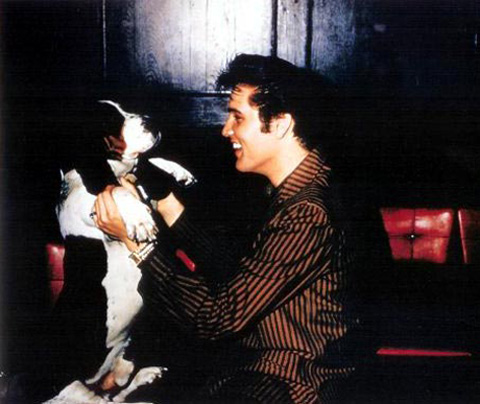
| Elvis quiff voted most iconic hair style: The world famous Elvis quiff has been chosen as most iconic hairstyle of all times in a poll of 4,000 adults. Marilyn Monroe. Audrey Hepburn, Lady Di and Bob Marley nade up the top five. Elvis was blond when he was born and although his hair went darker when he grew up, he dyed his hair black from his late teenage years untill 1977. |
 |
Elvis Chart Update
(Courtesy of Elvis International)
(sg - sales gainer, gg - greatest sales gainer, ne - new entry, re - re-entry)
Billboard Top 200 Albums - The Essential Elvis Presley - enters at #72 (ne, sg)
Top Holiday Albums - It's Christmas Time - up 2 to #19
Top Country Catalog Albums - Elvis 30 #1 Hits - up 3 to #15
Hot 100 Singles Sales - Heartbreak Hotel - up 8 to #30
Top Music Video - Elvis: '68 Comeback Special - up 5 to #17
Top Music Video - Elvis: Aloha from Hawaii - up 9 to #18
Top Comprehensive Music Video - Elvis: '68 Comeback Special - up 5 to #17
Top Comprehensive Music Video - Elvis: Aloha from Hawaii - up 9 to #18
New entries and Re-entries on the charts:
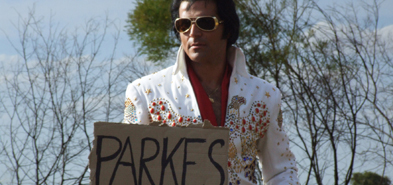
Parkes or bust!
Contact EIN
The EIN E-Alert is a free information service from the Elvis Information Network (EIN) for Elvis fans. If you do not wish to receive future editions of the EIN E-Alert simply reply to this message with REMOVE in the subject line
